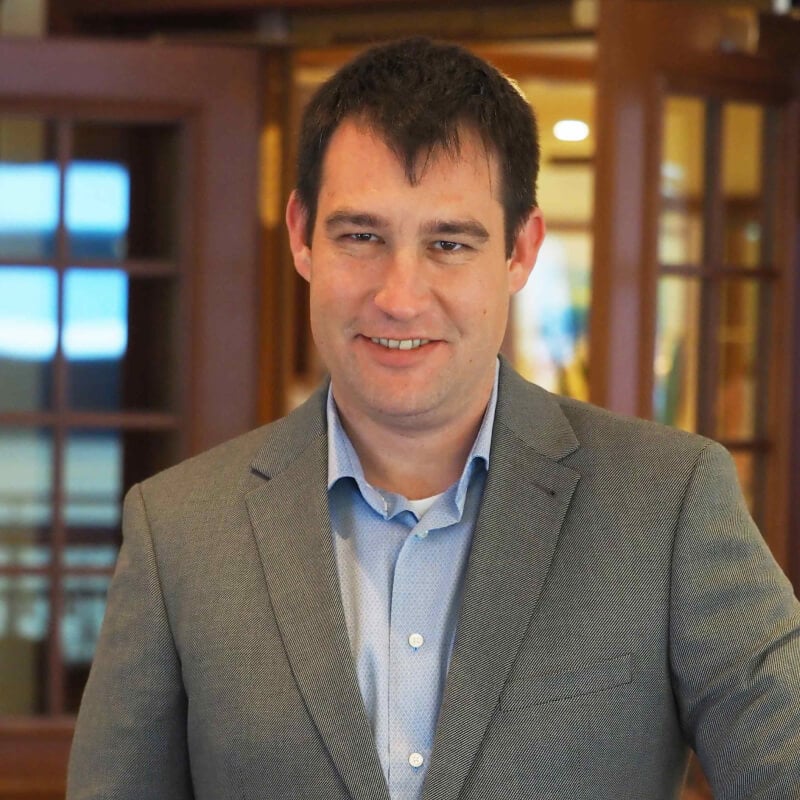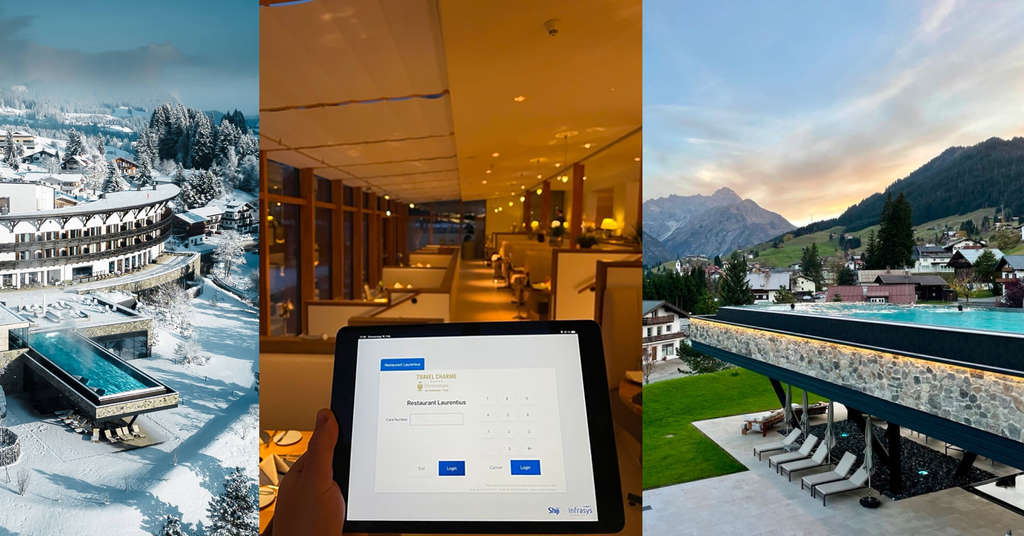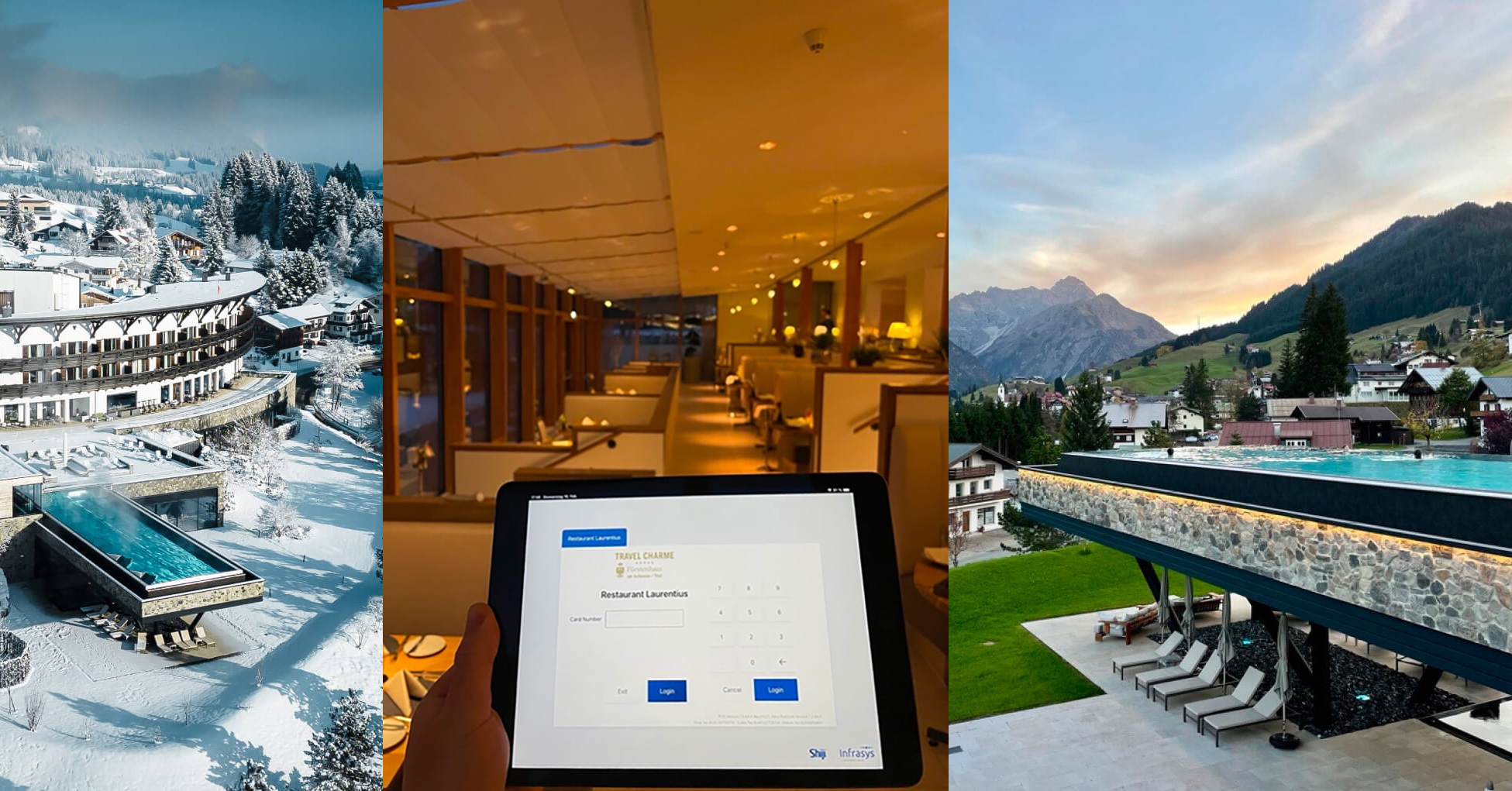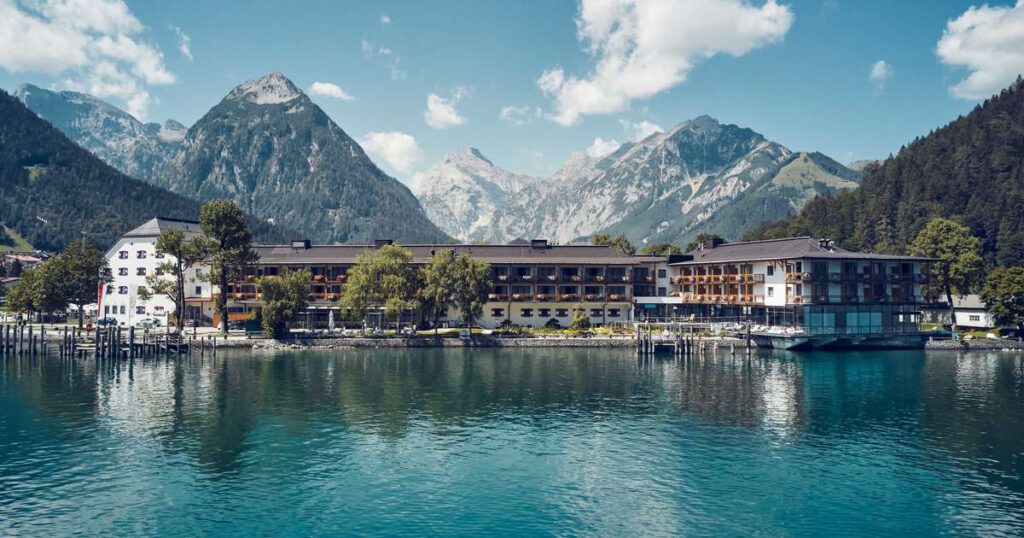Summary: This case study delves into the operational overhaul at Travel Charme Strandhotel Bansin, Germany, achieved through the implementation of Shiji’s Infrasys POS system. Facing challenges with an outdated system, the group recognized the need for a transformative solution to streamline processes. With 100 rooms and diverse dining options, including two restaurants and a bistro, the hotel caters to around 250 guests and hosts various events. The new POS system significantly enhanced efficiency, simplicity, and reliability. Greg emphasized the system’s stability, ease of use, and flexibility in combining menus from different restaurants.
About the customer: The Travel Charme Strandhotel Bansin, nestled along the scenic Baltic Sea coast on the island of Usedom, offers a kilometer-long sandy beach, expansive terraces that embrace the enchantment of the Baltic Sea and its abundant sunshine. Recognized by the Mecklenburg-Vorpommern Tourist Board for excellence in satisfaction, friendliness, and value, this hotel caters to all generations, providing an ideal getaway. Travel Charme Hotels & Resorts stands for a unique collection of currently eleven individual holiday hotels in the four- to five-star category in Germany and Austria with locations in the mountains and beaches.
Area of Operation: Germany, Austria
Number of properties: 11
Number of rooms: 100
Solutions implemented: Infrasys Cloud POS
In this case study, we’re going to learn how technology has streamlined operations for the Travel Charme Strandhotel on the northern coast of Germany.
Travel Charme Strandhotel Bansin is a popular hotel for people on holiday in Germany and across Europe. We are a very family-friendly hotel, with a children’s club with activities for kids of all ages,
general manager Greg Smlatic told me when we spoke recently. The property has 100 rooms accommodating around 250 guests each night, and they see peak demand during vacation time when their guests are enjoying the property and the surrounding area.

While guests enjoy having multiple options for dining on the property, it creates operational challenges. One of those is managing food and beverage around events, a key feature of the hotel’s operations. We’ve developed a big entertainment program,
Greg said, It’s very common for teams to have to accommodate live concerts and events like that.
The food and beverage team also needs to figure out how to deliver a wide range of culinary options efficiently. We serve a lot of Mediterranean dishes in our classic restaurant. Down in the bistro, we focus on more regional specialties. Delivering creativity and quality poses a challenge because not only do you need chefs who can design the dishes, but you also need teams that create them. Our F&B team consists of about 30 people, and everything we do is to work towards our goal of ensuring happy guests.


— Photo by (c) ArneNagel
It is difficult to reconcile all of this in a hotel, especially in a large establishment with complex processes and events such as the Travel Charme Strandhotel Bansin. The hotel team previously used a different technology to manage F&B activities and found it somewhat difficult to use. It was often not updated in a timely or sufficient manner,
Greg confided. It was slow to use. I couldn’t have my team members wasting their time with the technology and taking time away from guests.
Providing hospitality and delighting guests, of course, takes time, but that was just the start of the challenges Greg faced.
I found myself wasting time searching for things in the system. When we needed to change a new menu, it took us an unbelievable amount of time. Time that could’ve been spent on better things than sitting on the computer and taking days just to input something into a system.
I have to talk to my guests,
said Greg. That’s the part of the job that’s the most fun. As a hotel manager, sometimes you have to work in the office. I try to use the time here as efficiently as possible, because the time on the computer probably won’t change the experience for the guests.
Of course, engaging with guests wasn’t just about making Greg feel good. The guests notice and appreciate it too. I think it’s always important as a manager to be there with your team, talk to them often and support them. Sometimes there are problems and you have to be there to intervene and protect your employees. I always stand behind my team and am there for them.
For all of these reasons, it was clear a change was needed.
Bringing on new F&B technology
The Travel Charme corporate team was responsible for selecting new technology to power the company’s F&B experiences.
The decision to use the system was made in our head office because we have so many hotels: 11 hotels in Germany and Austria, with two more opening soon,
Greg told me. Our technology team did an extensive search and chose Shiji’s point-of-sale system, Infrasys, as the best option in the market.
Once that decision was made, each hotel’s management team was involved in implementing the technology on the property. Greg found this to be a straightforward process.
“Everything was so well prepared in advance. We knew exactly what Shiji needed from us and could get it ready, so we didn’t need to spend weeks or months going through set up.


The new technology activation process began with an introductory meeting where the Shiji team explained the workbooks they had created to streamline the setup process. They quickly helped us understand what the process would look like,
Greg shared. Anytime you change a core system like this, there are many things to think about: from how to make it as easy as possible in your team to logistics like setting up printers and where to locate stations.
With all the support from the team at Shiji‘s head office, implementation and setup was very, very easy,
Greg recalled. It was all done in just a few days.
Greg was really impressed by how efficient the whole process was because Shiji had prepared everything in advance. By thinking through all the elements that a successful implementation would require and doing work for the on-property team in advance, Greg noticed it was simpler than he was expecting.
Of course, I had some concerns going into this because we were in the middle of high season and fully booked. Changing an entire process in a core system seems a little scary. If you think about what could go wrong, it’s a lot. But we knew our old way of working wasn’t going to work for us. Moving forward with thoughtful planning and preparation, we are able to do implementation quickly and successfully with minimal impact to either staff or guests.


— Photo by (c) ArneNagel
Results with the new POS in place
The new technology in place has significantly enhanced our experience, offering a noticeable improvement compared to the old system we were using.
Using it is very simple. New things can be added very quickly by copying old menus and using the straightforward interface. It’s saving a lot of time for us,
Greg shared when asked about life with the new technology today. If we forget something, it’s not a problem because we can fix it right then and there.


Technology that can be relied on
The stable reliability is also a major advantage that they have noticed. Now I don’t need so much time to restart the system because the platform is very, very stable. In the last year and a half, there have only been two small glitches, which the Shiji repaired in no time.
Insight on response and issue resolution
This is key because of experiences many hotel operators have had with legacy technology. There’s a feeling many have in hospitality that technology will always break at the worst possible time – and I’ve seen that happen before – so being able to trust in Shiji’s system and know that we have a world-class technical team standing by to assist gives me a lot of peace of mind.
Technology that makes work easier
Ease of use is another key benefit for Greg and his team. With 30 team members and an environment where it’s hard to hire new ones, supporting newer, inexperienced team members has been key.
We haven’t had any problems teaching new workers how to use Shiji because it’s so easy. There are no unnecessary steps, and there are in-tool prompts that guide team members to make the right selections. It reminds the user if they forgot to send in order to the kitchen or things like that.
Of course, which is what technology should do: reminders for things we miss that point us in the right direction.


Empowered with flexibility
Flexibility is also an important benefit Greg and his team have recognized because the dining concepts on these properties are so different.
We found it very useful because there are obviously different menus in each restaurant, but were able to combine items from each restaurant and find it very, very easy to divide this up. I’ve always been a fan of using one system for as many things as possible, and we’ve been able to use Shiji in our concept store at the front desk, where guests can make purchases with their iPhone – it’s all very seamless.
Insight into operations
Another thing Greg really appreciates from Shiji Infrasys is the insight he can gather from its analytics.
As a hotel leader today, it’s very important to know the numbers behind all of this. We need to see how much of each item you sell. How many covers did we make? What are the peak hours? How long does it take to serve guests? Data points like these are very helpful for me in planning and managing our teams.
With these insights, Greg can make decisions to improve both the operational performance and the financial performance of the hotel. And he’s already seeing the impact.
Our managers have been able to work with our frontline coworkers and help them get better at selling. Our guest may enjoy a gin and tonic, so we can configure the system to suggest five gins they may be interested in automatically. It can be set up to make sure we are selling ones with healthy profit margins. And then on the other side of that, we have reporting where we can see which coworkers are most effective at doing upsells and should be rewarded.
While it’s very difficult to estimate the time and money savings, Greg sees efficiency across the property. It’s not even a question we’re saving time and making more money with Shiji’s POS. Our team members say that Shiji’s point-of-sale has made life easier for them. Especially workers who have been with us for a number of years and had to use our old system were very happy to see the change.
A goal of Greg overseeing food and beverage now the entire hotel was spending less time on technology and more time talking to guests. It’s delivered on that.
Shiji saves me a lot of time. I now have access to everything I need. If I want to create a report, I can press a button and it’s immediately available. This saves time for me and for my team. I find the reports easy to understand and can immediately see how successful the previous day’s performance was. I can see immediately if there are any problems.


Advice for other hotel operators
For other hoteliers, Greg encourages them to explore technology that can help them deliver the results that he’s experienced.
Every serious hotelier needs to have working technology infrastructure. Of course, this costs some money and takes some time, but good things always cost money. It’s an investment into being more effective. It will help everything from your planning to daily operations.
Greg encourages food and beverage leaders to not just look at the overall cost of the program but also the big picture and considerable time and money savings as well as revenue creation opportunities with modern F&B technology.
Don’t just look at the initial price, get feedback from others who are using the product and understand what it really means for your business. There are so many benefits from investing in this technology. Do your homework, talk to others who are using technology that’s producing results, and you’ll be in a position to succeed as a hotel leader today.
About Shiji Group
Shiji Group is a multinational technology company that provides software solutions and services for enterprise companies in the hospitality, food service, retail, and entertainment industries, ranging from hospitality technology platforms, hotel management solutions, food and beverage, and retail systems, payment gateways, data management, online distribution and more. Founded in 1998 as a network solutions provider for hotels, Shiji Group today comprises over 5,000 employees in 80+ subsidiaries and brands in over 31 countries, serving more than 91,000 hotels, 200,000 restaurants, and 600,000 retail outlets.
About Travel Charme Hotels and Resorts
The Travel Charme Strandhotel Bansin, nestled along the scenic Baltic Sea coast on the island of Usedom, offers a kilometer-long sandy beach, expansive terraces that embrace the enchantment of the Baltic Sea and its abundant sunshine. Recognized by the Mecklenburg-Vorpommern Tourist Board for excellence in satisfaction, friendliness, and value, this hotel caters to all generations, providing an ideal getaway. Travel Charme Hotels & Resorts stands for a unique collection of currently eleven individual holiday hotels in the four- to five-star category in Germany and Austria with locations in the mountains and beaches.
View source



